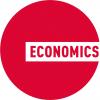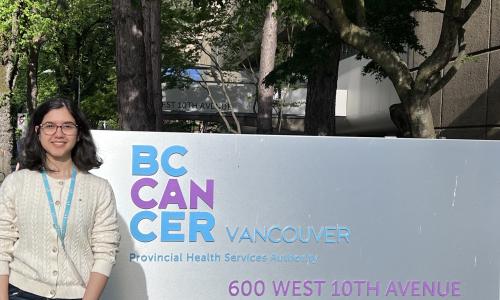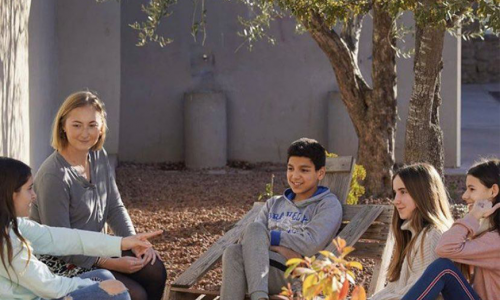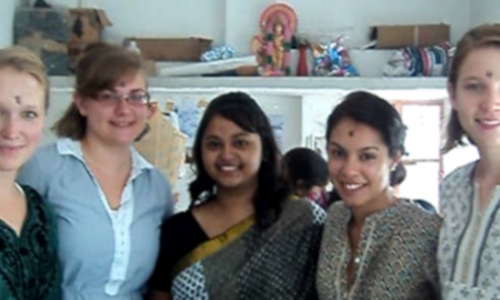
The blog was originally published on the SFU Economics News site on September 10 2021.
Even as a child, economics student Justine Mok loved helping others and she aspired to pursue a career that would allow her to make a meaningful difference. So it was fitting when she landed a co-op placement with Employment and Social Development Canada (ESDC), which works to improve the standard of living and quality of life for all Canadians through the labour market and social programs like the Employment Insurance (EI) program.
During this past year, the EI program has been especially crucial in helping many Canadians weather the economic challenges brought on by the pandemic. "The biggest highlight of this experience was the feeling that I was making a positive impact on people," says Mok. "Being able to put work towards helping someone else not only drives me to continue doing so but it also reminds me that I am investing in myself so that I can eventually go on to make a big difference for others."
As a junior economist, Mok led and assisted analytical projects related to the design, use, and impact of the Employment Insurance (EI) program. She also developed research and analyses of economic issues using a variety of analytical tools and models.
Mok's position with ESDC initially called for her to relocate to Ottawa but when it pivoted to a remote work placement, Mok did not let it deter her. "Working remotely did pose challenges but it also had its perks," says Mok. "I was still able to connect with many people within ESDC and I definitely feel like I've grown my network in a meaningful way."
For the economics major student who is also pursuing a minor in international studies, her work at ESDC has helped to define her career direction. Mok explains, "The experience has reinforced my desire to work for the federal government helping people, and it has also prompted me to consider a career in policy."
Although her co-op work experience has strengthened her analytical and technical skills, one of the most valuable takeaways Mok learned was the importance of developing your writing skills for effective communication. "Although the style of writing was different, the concise writing and synthesizing of information required in W economics courses was helpful when writing summaries, briefing notes, and presentations."
As Mok reflects on the past four months, she feels grateful for the support from the Arts Co-op office, "The help provided by the advisors were invaluable. They worked with me on improving my application documents, becoming more confident in job interviews, and developing work search strategies based on my experience and career goals."
Now in her last semester, the experience and connections Mok made during her co-op placement has paid off—ESDC has offered her a full-time position which she plans to accept after graduation.
"For students considering co-op, it is a great opportunity that opens a lot of doors and helps you develop as a professional," says Mok. "With my new skillset and experience, I feel ready to face whatever is to come after graduation."
-
ECON 355W - Economic Development
-
ECON 427W - Industrial Organization: Law and Economics
-
ECON 448W - Seminar in the Economics of Crime
-
LBST 307 - Unfree Labour and Modern Slavery: Understanding Coercion and Exploitation in Contemporary Labour Markets
-
IS 307 - International Ethics: Poverty, Environmental Change, and War
















